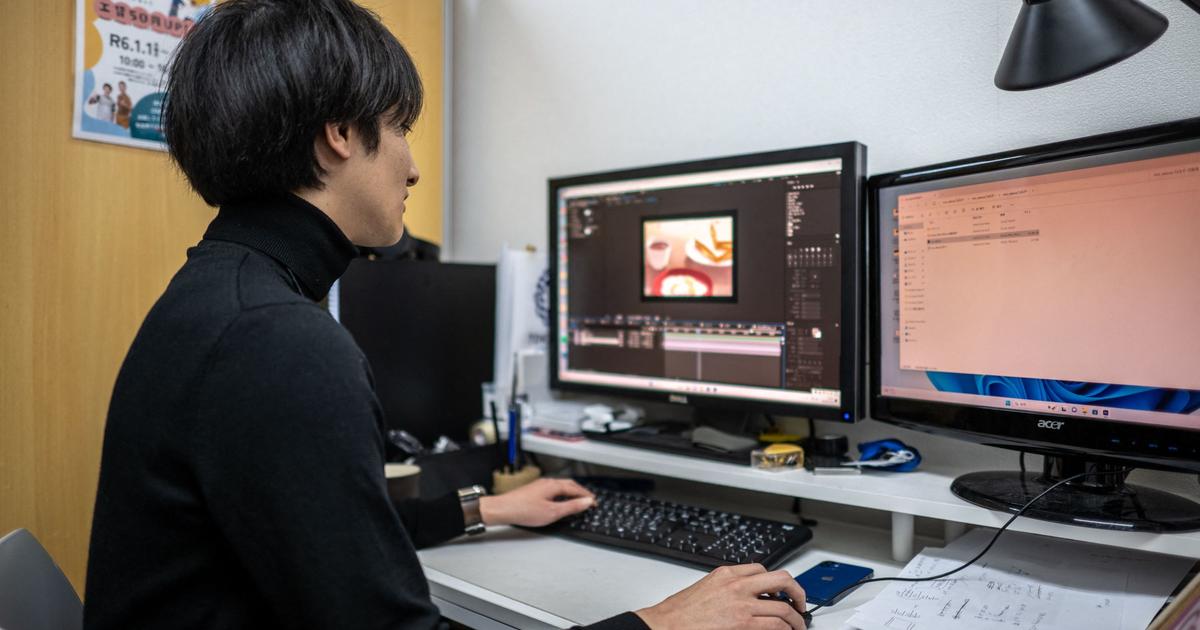Through adapted space arrangements and schedules, the Shake Hands studio in Kyoto offers appropriate working conditions for autistic employees.
Diagnosed with autism, Shoko Sakuma was disoriented in a traditional work environment. This 39-year-old Japanese woman is now delighted to be able to exploit her childhood passion for drawing, in a specially adapted animation studio. Also having attention deficit disorder, she had difficulty concentrating in her previous job, an accounting position: she got tangled up in numbers, lost important objects, was obsessed with small details. Sometimes her situation of failure depressed her so much that she no longer left the house, also developing bipolar disorder.
But today she works at the Shake Hands animation studio in Kyoto, where she adds digital effects to key frames in a partitioned office, a spatial configuration that helps her concentrate. “With my personality, I can only take the next step if I fully understand every detailexplains Shoko Sakuma to AFP. The instructors here accept me as I am, and teach me the work very gently. I feel comfortable here. I have fun.”
“No abstract rules”
Created a year ago, Shake Hands is one of the first Japanese animation studios adapted for autistic employees. “An animated film is based on what is called a timesheet, a plan that controls each movement of the charactersexplains Yuki Kawai, a 28-year-old studio trainer. There are no abstract rules when doing animation (…) and that’s why it’s easy to understand for people like us.
He himself was diagnosed as having an attention deficit disorder during his first – disastrous – professional experience in sales, after finishing his art and design studies. “Often I couldn’t get up in the morning, or get to the office on time, he says. I couldn’t handle phone calls because I often got people’s names wrong.”
For people with autism spectrum disorder (ASD), such a traumatic experience can trigger mental health problems, warns Yuji Umenaga, a professor at Waseda University in Tokyo who specializes in the field. “Many people who come to see me have symptoms of depression”he explains to AFP. “Antidepressants are not effective for them, because these are the symptoms of ASD that make it difficult to relate to bosses and colleagues.”
“Wonderful potential”
Shake Hands has already produced animated sequences for several big-budget films, and a Malaysian company commissioned him to produce a promotional animated film. Catchy background music punctuates the work of the studio’s dozen or so employees, who receive a symbolic salary. “In a quiet environment, some people are sensitive to the fact that others are chatting, and think that they might be the subject of their conversations”explains Momoka Tsuji, a staff member.
Those who become too engrossed in their task – a common problem – are reminded that they need to take a break every hour. Studio employees can start and stop their workday whenever they want, even late at night. “Some of our colleagues don’t feel comfortable having direct conversations, so we communicate through a chat function on the intranet”also explains Tomoya Sawada, 34, the director of the studio.
In Japan, developmental disorders have long been considered a simple matter of personality, but scientific studies have contributed since the beginning of the 2000s to raise society’s awareness of the subject, to better care for these people from childhood and to increase the number of adapted businesses in the country. Professor Umenaga hopes that the example that Shake Hands will emulate in Japan, like Exceptional Minds, a Californian animation studio founded in 2011 which trains autistic students. “In order to make their wonderful potential shine, we must provide them with an adequate environment, from school to professional training”pleads the professor.
